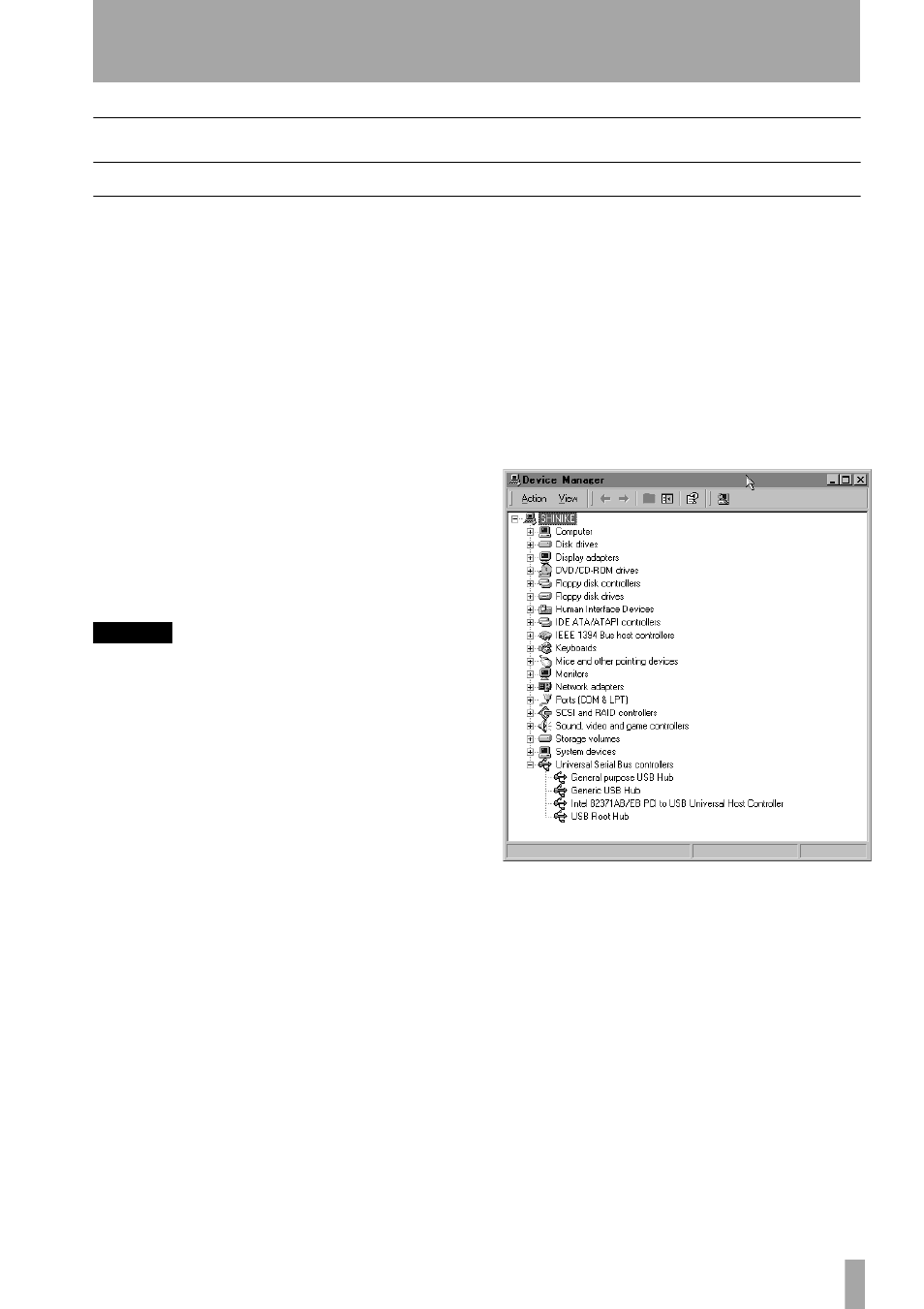3 - installation, System requirements, Pc (windows) – Teac US-122 User Manual
Page 9: 3 installation, 3 – installation

TASCAM US-122 —
9
3 – Installation
System Requirements
PC (Windows)
Minimum requirements:
Pen-
tium II - 266 MHz (or equivalent) pro-
cessor running Windows 98 (Second
Edition) or Windows Me (Millennium
Edition), Windows 2000 or Windows
XP, 96MB RAM.
Recommended:
Pentium II
300MHz processor with 128MB RAM
or better (these requirements are for use
with Cubasis VST. Other applications
will have different requirements. Consult
your application’s manufacturer for fur-
ther information).
NOTE
NOTE:
The US-122 is not supported under Win-
dows 95. We also do not recommend Win-
dows 98 First Edition, due to its limited USB
implementation. A fast EIDE hard disk is
required for throughput of multiple audio
tracks. 96MB RAM is the minimum recom-
mended, but with all digital audio pro-
grams, you will obtain better results with
more RAM. An SVGA graphics card is sug-
gested (minimum 256 colors, 800x600 reso-
lution or better).
Although this product has been checked
for use with normally configured com-
puters which meet the specifications
above, we cannot guarantee the opera-
tion of the product, even with computers
meeting the specifications, due to differ-
ences in architecture and implementation
between computers.
Chipsets are also a concern with USB
audio. We have found that the most
dependable motherboards are ones
which utilize Intel-based chipsets. You
can determine your chipset by going into
the Device Manager. On the Windows 98
desktop, right click on
My Computer
,
and select
Properties
. Click on the
Device
Manager
tab, and then click on the plus
(
+
) sign next to
Universal Serial Bus
Controllers
. (see illustration below)
The US-122 has been successfully used
with the following chipsets:
• Intel 82371 AB/EB PCI to USB Uni-
versal Host Controller
• Intel 82371 SB PCI to USB Universal
Host Controller
• Intel 82801 AA PCI to USB Universal
Host Controller
• ALi PCI to USB Open Host Controller
Some other chipsets, notably those spec-
ifying Open Host Controllers or OHCI
(rather than Universal Host Controllers
or UHCI), have been subject to occa-
